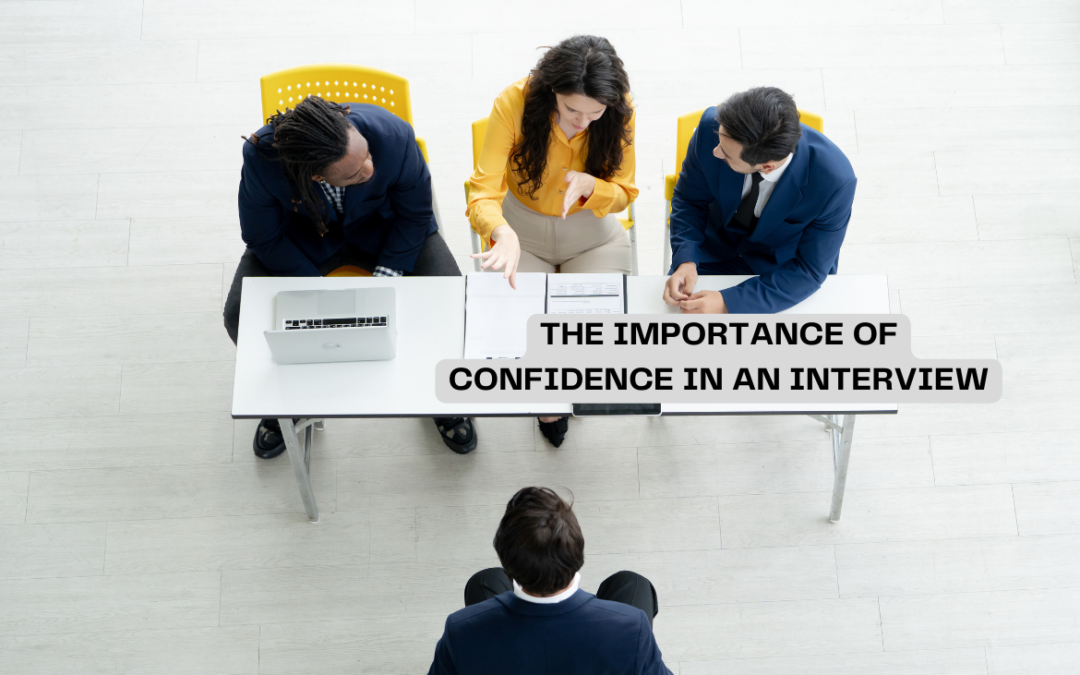Interviews are important events in one’s career, often determining the path of professional development. The Importance of Confidence in an Interview is a must. Among the many qualities that candidates have, confidence stands out as a key factor. Confidence affects not only how an interviewer perceives a candidate but also how the candidate performs. Here’s why confidence is important in an interview and how it might influence the outcome.
The Power of First Impressions
When it comes to job interviews, the saying “first impressions last” is particularly relevant. The atmosphere of an interview can be set within the first few minutes when a candidate enters, shakes hands, and takes a seat. An interviewer can form a positive first impression of a candidate who displays confidence, as shown by a firm handshake, consistent eye contact, and a genuine smile.
Demonstrating Competence
The link between confidence and perceived competence is strong. Candidates who express confidence when discussing their skills, experiences, and achievements project a sense of reliability and capability. This is crucial because interviewers often associate confidence with the capacity to handle job responsibilities effectively. For example, a candidate who confidently says their previous successes is more likely to be seen as capable of replicating those achievements in the current role.
Handling Tough Questions
The purpose of interviews is to evaluate a candidate’s adaptability and capacity for handling pressure. When dealing with challenging situations or issues, confidence is essential. In contrast to a lack of confidence, which can result in anxiety and hasty, less-thinking answers, a confident candidate maintains composure, takes a moment to collect their thoughts, and gives well-considered solutions. Interviewers may be impressed by a candidate’s ability to remain composed under pressure and see how well they can solve problems.
Non-verbal Communication
Confidence can be expressed through body language in addition to words. The way that people analyse nonverbal clues, including posture, gestures, and facial expressions, greatly affects communication. A candidate projects confidence through adequate eye contact, open gestures, and an upright posture, all of which enhance the effectiveness of their spoken communication. However, slouching, avoiding eye contact, or fidgeting may divert attention from the message and convey a lack of confidence or preparation.
Building Rapport
Building rapport with the interviewer can help the interview flow more naturally and less like a question-and-answer session. Candidates who are confident tend to interact more easily, pose thoughtful questions and offer relevant tales. By establishing a relationship with the interviewer, this candidate can distinguish themselves from others who may be as qualified but less interesting, making the interview memorable and enjoyable. that’s why having the Importance of Confidence in an Interview is necessary.
Projecting Enthusiasm and Positivity
Candidates who are excited about the work and the organisation, in addition to being capable, are highly sought after by employers. Candidates who convey confidence are able to convey a sincere enthusiasm and curiosity that has the potential to spread. Together, confidence and enthusiasm imply that the applicant is driven and would be a great asset to the group. This optimistic approach may prove to be crucial, especially when selecting between applicants who possess comparable qualifications.
Overcoming Setbacks
Interviews don’t always go smoothly. A candidate may stumble over a question or realise they have made a mistake. Candidates who are confident in themselves can recover gracefully from setbacks. A confident applicant may accept the blunder, repair it, and proceed without letting it disrupt the entire interview. This resilience is an appealing attribute because it demonstrates the candidate’s capacity to deal with problems at work.
Practical Tips to Boost Confidence
Preparation: A thorough preparation can greatly enhance confidence. Investigate the company, understand the job description, and practice common interview questions.
Mock Interviews: Hold mock interviews with a friend or mentor to imitate the interview process and obtain constructive criticism.
Good Visualisation: Visualising a successful interview will help you cultivate a good attitude.
Body Language Practice: Improve your posture, handshake, and eye contact to project confidence.
Breathing Exercises: Breathing exercises can help calm nerves and reduce anxiety.
Conclusion
Confidence is a complicated attribute that may affect all parts of an interview, from initial impressions to the ability to manage difficult questions and develop rapport. While abilities and expertise are important, how they are conveyed through effective communication can have a major impact. As a result, investing in developing and presenting confidence is not only advantageous but also required for interview success. Always know the Importance of Confidence in an Interview. be confident

